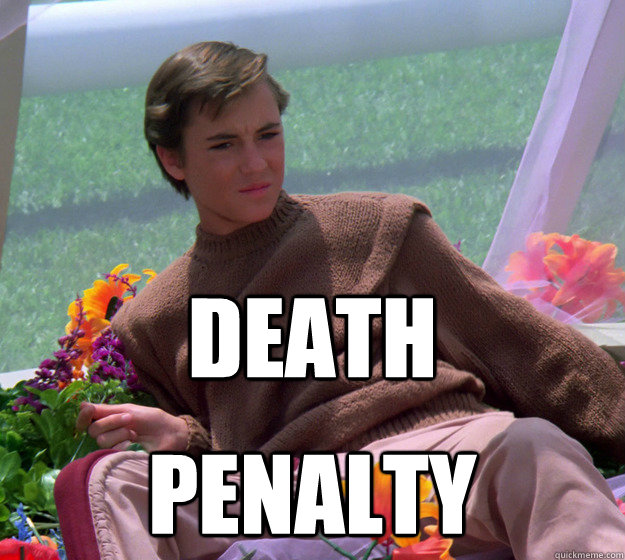Okay, this is the last I have to say about the matter. Take to PM/email before somebody tells us to get a room.... lol
....the basis for your accusation is your absurd claim that someone has cheated, but is not a cheater. i didn't insult or attack you.
I never made that absurd claim, either. See below regarding the insults.
...the problem with labeling it cheating is that it falsely equates the act with those which are obviously much, much more severe.
Cheating is cheating. Just because one type is arguably worse than another type doesn't change that. Different degrees of cheating? I suppose. Does murdering a person in premeditated cold blood make murdering a person in a fit of rage/passion NOT murder? Nope, still murder. Is one worse than the other? Probably. Doesn't change the terminology, however. I don't think it necessarily equates the act with anything, falsely or not. Of course, you may choose to equate it with whatever you want.
...you clearly understand that agreeing to check down a hand is not equivalent to, for instance, palming chips from a pot while pushing the pot to the winning player. you stated that you would not ban a player for agreeing to check a hand down. obviously you would ban a player for stealing money from the pot, so why you stubbornly apply the same terminology to both acts and why you would not feel the need to further clarify to the players in your game is difficult for me to understand.
I never called stealing chips cheating, you did. I'd just call it stealing. Regarding the clarification issue, see below.
...your stubborn refusal to back away from the position that someone who checks a hand down should be called a cheater.
I never said that someone who checks a hand down should be called a cheater. You said that was my position, not me (ie, putting words in my mouth). I simply said that intentionally breaking the rules to gain an advantage is cheating. Agreeing to check down a hand (collusion) is an example of intentionally breaking the rules to gain an advantage. Sorry if you can't see the difference.
...if a player is called a cheater, other players will justifiably ostracize them from games. however, if those players learn that the supposed cheater's offense was agreeing to check a hand down, reasonable players would recognize that ostracization is an absurd reaction.
Again, I never called anybody a cheater. Nor am I responsible for the ostracization of individuals by others, whether it be justifiably, absurd, or otherwise. Why do you want to hold me responsible for the actions of others?
your own view as to the proper penalty for agreeing to check a hand down makes this clear as well. you state that a player guilty of such an infraction would not be banned unless he committed multiple offenses. what if a player was caught palming chips out of the pot as he pushed it to the winner? would you wait for multiple offenses or would you permanently remove him from your game? i'm sure the latter. why not the same penalty for the guy who agrees to check a hand down? the answer is obvious - because they are not the same offense. they are qualitatively different. so calling them the same thing - and in particular using the most inflammatory language possible to refer to them both - is not accurate.
I think everybody agrees that stealing is a pretty serious offense. That doesn't change the fact that intentionally violating a rule (ANY rule) to gain an advantage is cheating, nor does it make that statement inaccurate.
it's your failure to recognize that classifying a player who agrees to check a hand down as a cheater - and an expressed willingness to provide no clarification to other players - that is rigid and short-sighted.
I'm not sure exactly what that sentence means. I didn't classify a player who agrees to check a hand down as a cheater (again, putting words in my mouth). But even if I did, the statement:
"It's your failure to recognize that classifying a player who agrees to check a hand down as a cheater... that is rigid and short-sighted." really makes no grammatical sense. Maybe you accidentally left out some key words.
Regardless of the penalty, if a host told me that a player was found to be cheating in the game and I found out later that the conduct which constituted the "cheating" was agreeing to check down a hand with another player all in, I would assume the host to be either an uptight prick or an idiot.
Your inference here is very clear, hence my reference to personal insults. Even though I would never tell you (or anyone) simply that a player was found to be cheating in a game I hosted, certainly not without further elaboration. If I did say anything at all, it would be a clear and detailed account of the events.

